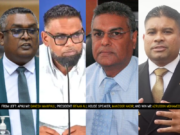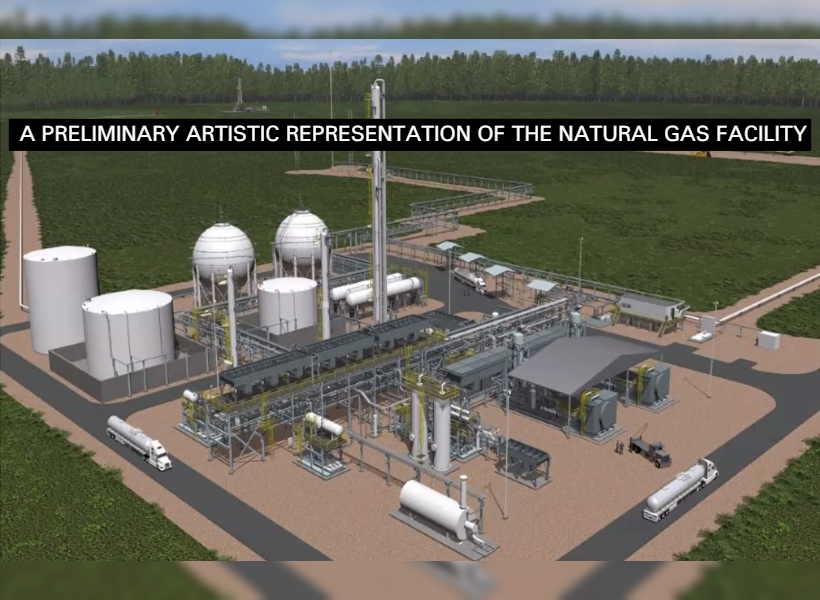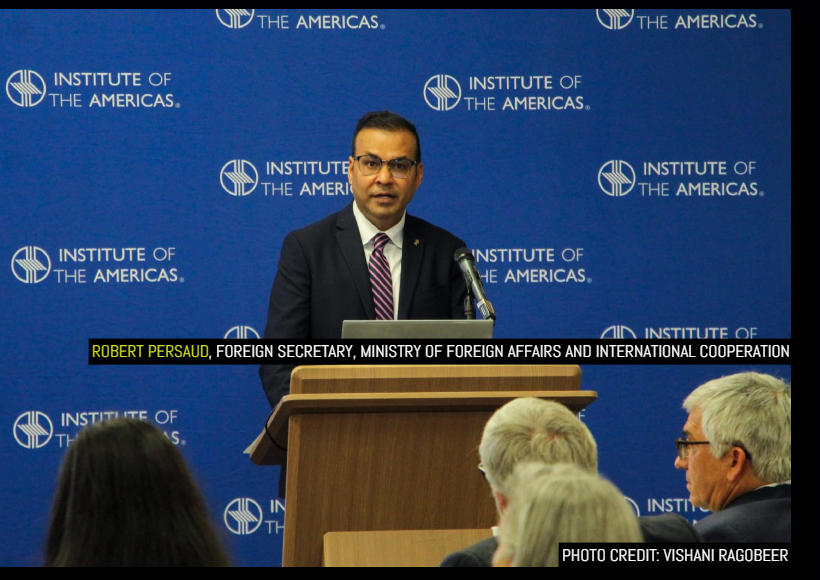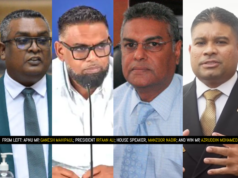By Abena Rockcliffe
Facts about Guyana being the fastest growing economy and the infrastructural transformation taking place there took a backseat as Foreign Secretary, Robert Persaud addressed the La Jolla Energy Conference that began this morning in San Diego, California.
Persaud spent his time highlighting Guyana’s efforts to marry national development with environmental sustainability. He dubbed this the country’s main goal, with a concerted effort by the ruling administration not to put any of the two priorities above each other. In this regard, the Low Carbon Development Strategy (LCDS) took center stage.
Persaud outlined a brief history of the strategy, noting how it was the brainchild of former President Bharrat Jagdeo, officially presented in 2009, but then adopted and revised by President Irfaan Ali, now dubbed LCDS 2030.
“The vision remains vital,” said Persaud as he noted the challenges associated with climate, energy, and food security.
The Foreign Secretary noted that LCDS 2030 outlines Guyana’s vision for creating new incentives for a low carbon economy, protecting against climate change and biodiversity loss, stimulating clean energy and low carbon development, and aligning with global climate and biodiversity goals.
A key component of LCDS 2030, he noted, is premised on the recognition that Guyana’s forests play a critical role in combating climate change. Globally, forests absorb nearly one-third of the carbon dioxide released through fossil fuel emissions each year. These forests not only regulate the planet’s climate, but provide habitat for countless species, protect biodiversity, and sustain the livelihoods of indigenous peoples and communities.
Persaud said it is within this context that Guyana has been a strong advocate for Jurisdictional and Nested REDD+ Frameworks, including for High Forest, Low Deforestation (HFLD) regions to foster a united effort in addressing climate mitigation and adaptation goals.
Persaud boasted that over the years, Guyana has cemented itself as a global leader in climate action and sustainable development. He said this is evidenced through concrete outcomes and initiatives that are innovative, forward- looking and impactful.
In this regard, he highlighted that Guyana is widely recognized as a carbon sink, demonstrating a net carbon-negative status.
Further, the Foreign Secretary noted that in 2022, Guyana was the first country to obtain REDD+ Environmental Excellence Standard (TREES) credits formulated for voluntary and compliant carbon markets to prevent forest loss and degradation. Architecture for REDD+ Transactions (ART) issued Guyana with 33.47 million TREES credits for the period 2016 to 2020.
Persaud informed the audience that Guyana, in keeping with commitments made in its LCDS, sold US$750 million of carbon credits to Hess in December 2022.
The Foreign Secretary noted as well that in February 2024, the Government of Guyana announced the issuance of the world’s first carbon credits that are eligible for use by airlines in Phase 1 of CORSIA – the United Nations’ International Civil Aviation Organisation (ICAO)’s global emissions reduction programme.
Further, Persaud highlighted that Guyana has become the second country, after Andorra, and the first Small Island Developing State to submit a Biennial Transparency Report (BTR) assessing progress under the Paris Agreement. Guyana’s submission comes well ahead of the December 31, 2024 deadline, setting an example for other nations (UN Climate Change News, April 2024).
He noted too that President Irfaan Ali, in his address to the United Nations General Assembly last month, stated that Guyana is committed to doubling its Protected Areas by December 2025 and to achieving the global biodiversity target of 30% by 2030. President Ali also announced the launch of a Global Biodiversity Alliance and the first Global Biodiversity Alliance Summit which will be convened in 2025 in Guyana. This Alliance seeks to unite stakeholders worldwide to preserve and restore biodiversity for future generations by fostering collaboration across sectors and regions.
Persaud said that Guyana is extremely proud of those achievements, even as it continues to explore the safe development of its oil and gas resources.











